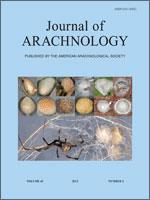To the extent that sperm production or mating opportunities are limited, males are expected to allocate their sperm optimally, so as to increase their overall fitness. Among spiders, sperm depletion and monogyny are known to be optimal male mating decisions either under strong sperm competition or as terminal investment strategies, when future mating opportunities are limited. In a medium-sized wolf spider, Hogna radiata (Latreille 1817), we investigated sperm depletion, terminal sperm investment and the potential for sperm competition in laboratory mating trials in which we allowed males and females to pair sequentially with two mates. Males mated with as many females as they encountered. We found no evidence of sperm depletion or terminal sperm investment, as mating duration and female fitness were unaffected by male mating history or age. Polyandry was rare and did not involve any clear fitness benefit to females, whereas pre-mating sexual cannibalism was a rather common outcome of mating interactions involving inseminated females. Our results indicate that H. radiata males are not sperm limited and support the hypothesis that the potential for sperm competition shapes the evolution of sperm allocation in this species. Monandrous females do not incur any fitness cost and could potentially benefit from cannibalizing their prospective mates.
How to translate text using browser tools
1 August 2013
Hogna radiata males do not deplete their sperm in a single mating
Carmen Fernández-Montraveta,
Mariano Cuadrado
ACCESS THE FULL ARTICLE

The Journal of Arachnology
Vol. 41 • No. 2
August 2013
Vol. 41 • No. 2
August 2013
Lycosidae
mating systems
monandry
Polygyny
sperm competition




